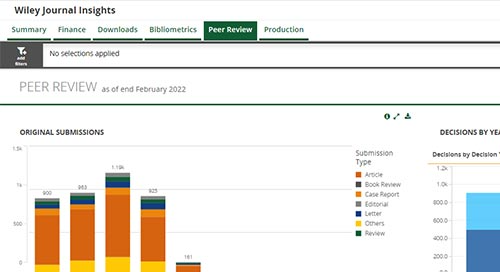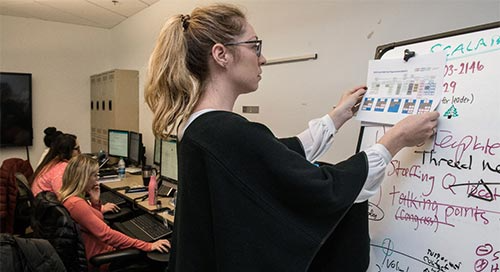how-can-societies-become-more-sustainable-discover-top-tips-and-practical-actions
May 16, 2022
As pioneers of social and academic progress, societies play a key role in the fight against climate change. So, how can they become more sustainable?
Our latest Society Executive Seminar explored practical actions that societies can take to reduce their environmental footprint. Here are some of the top tips shared by our panel of society partners:
- Track your carbon footprint –The Greenhouse Gas Protocol breaks this down into 3 scopes; start with Scope 1 (energy you consume via the assets you own) and Scope 2 (energy you purchase). Scope 3 relates to emissions produced from all other activities, but via sources the organisation doesn’t own or control. Use these conversion factors to calculate the carbon emissions associated with your society’s activities.
- Establish an environmental policy – Outline your core values and goals and track against this to follow your journey. Where possible, consider local vendors.
- Map activities to UN sustainable development goals – Pick some key goals to focus on and map your strategies and activities to them. For example, Climate Action (Goal 13).
- Get support - Talking to other societies, comparing experiences and sharing knowledge is a great way to support each other. Members of staff need to have dedicated time to work on this agenda– you could also enlist specialist help.
- Adapt conferences and meetings – Offer hybrid meetings (face-to-face and online). For face-to-face meetings, consider hosting near public transport links and in locations with strong sustainability values. Select venues that have implemented actions to reduce their footprint - such as carbon net zero, renewable energy and zero waste. Getting caterers in? Think about your menu and materials used, and always consider local suppliers.
- Reduce commuting and travel – Minimize travel where possible, with hybrid meetings and incentives to use public transport.
- Evaluate your investments – Explore divesting both direct and mutual funds from fossil fuels. By working together on this agenda, societies have the collective power to drive change.
- Consider carbon offsets and green tariffs – Check that offsets schemes and green tariffs are genuine – particularly energy certificates. The Oxford Offsetting Principles offer guidance on the use of offsets.
The key takeaway from this conversation? Some action is better than no action. We can help societies become more sustainable by:
1. Exploring ways to minimize the impact of print. This could be moving online only, reducing the use of air freight, or better understanding readers attitude to print.
2. Digitizing content. Wiley Digital Archives digitizes your content, minimizing travel and energy costs from storage. The Environmental Science & History archive launches in September 2022.
3. Sharing experiences and actions. Want to discuss or explore further? Contact Jon Ray at joray@wiley.com
Thanks to our panel of society partners, for sharing their experience and recommendations!
Further Resources
- Climate Action for Associations - https://www.climateactionforassociations.org/
- Pledge to Net Zero - https://www.pledgetonetzero.org/
- Offsetting strategies – Oxford Offsetting Principles
- UN Global Compact – organizations can sign up to the UN Global Compact Academy and/or their local UN Global Compact Network, which provides training, resources, and webinars.













